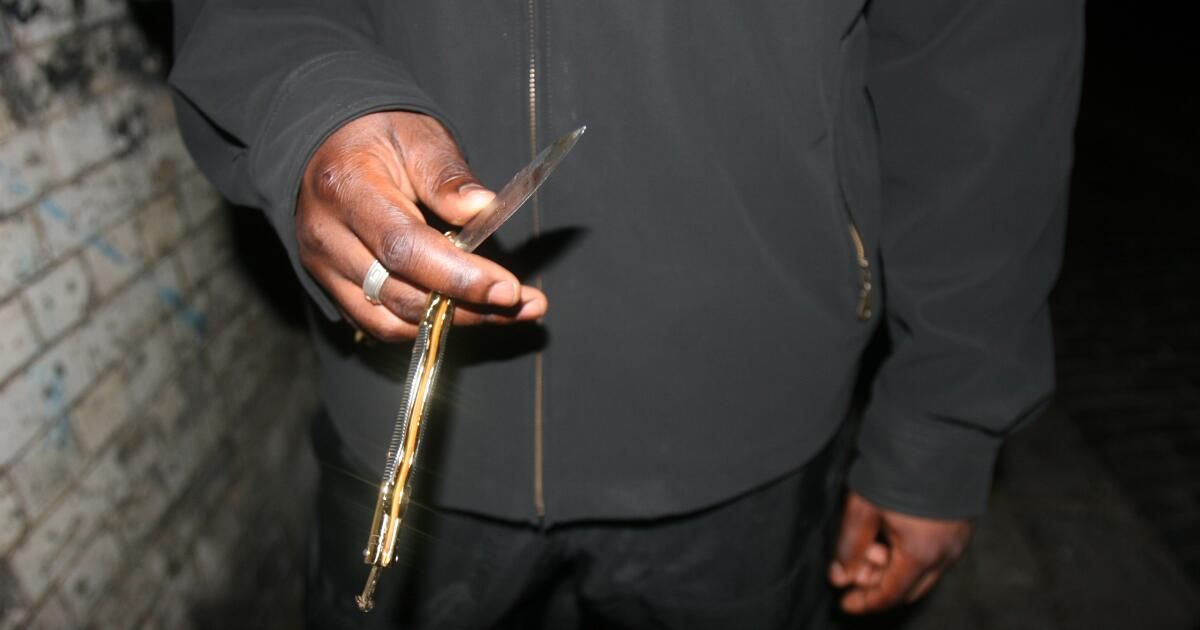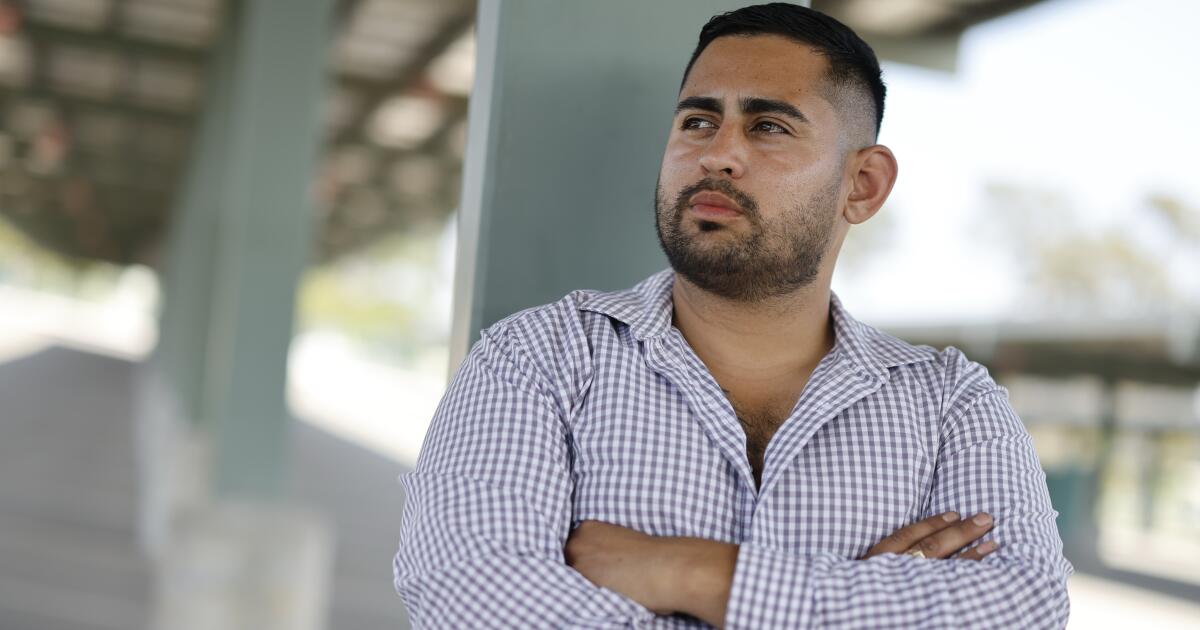In 2021, U.S. District Judge Roger T. Benitez ruled that a 100-year-old ban in California on club-shaped weapons known as “truncheons” was constitutional precisely because it was “long-standing.”
Last week, Benítez, reviewing the case for the second time, ruled the opposite: the ban is unconstitutional because it is not old enough.
“What is different today,” the judge wrote, “is that a statute enacted in 1923 no longer gets the nod for being 'longstanding.' “
Benitez's repeal was the latest example of the rapidly changing landscape for Second Amendment law in the country, not just for firearms, but for all types of other weapons. Beyond the batons, laws banning butterfly knives, switchblades and other bladed weapons are also being questioned.
In the case of 2022, the New York State Rifle and Pistol Association. vs. Bruen, the U.S. Supreme Court said that state restrictions on the Second Amendment are legitimate only if they are deeply rooted in American “history and tradition” or are closely analogous to some other historic law.
To be relevant under such an analysis, the high court said, a similar law or ban would have to date back to 1791, when the Second Amendment was adopted, or to 1868, when the 14th Amendment and its corresponding due process protections were adopted.
The ruling shook American firearms jurisprudence to its core. It sparked challenges to state gun laws across the country and revived many other gun cases that had failed to gain traction in the courts.
Benitez, a George W. Bush appointee affectionately referred to by gun rights supporters as “Saint Benitez,” has previously repealed several California gun laws in light of the Bruen decision, including bans state regulations on assault weapons and high-capacity magazines. .
The state is appealing those decisions and California Atty. Gen. Rob Bonta's office quickly notified the court that it would also appeal the billy club's ruling, which it said in a statement “defies logic” and “contradicts” Bruen's decision in a way that “puts public safety at risk.” .
As the case makes clear, the standard set by Bruen goes far beyond rifles and pistols.
“The Second Amendment protects the right to bear arms,” said Adam Winkler, a UCLA law professor specializing in Second Amendment law, “and the Supreme Court has made clear that that is not limited to firearms.”
Across the United States, state laws prohibit a large number of weapons, from edged weapons to blunt instruments.
Now they are all fair game for overthrow in the eyes of gun rights enthusiasts and other gun enthusiasts, who view any restrictions as an infringement on their right to bear arms.
Legal cases involving weapons other than firearms present some different issues, but they now largely rely on the same Bruen-inspired historical analyzes that gun cases are based on, experts said. Lower district and appeals court judges are still grappling with the Bruen test and how to apply it, experts said, leaving the legal landscape unsettled.
“Bruen is so inherently ambiguous, and the [history and tradition] “The evidence is so unknown to the judges that there are only fundamental disagreements,” Winkler said. “It's completely foreign to the courts to look solely at history and tradition to determine the scope of the government's regulatory power, and they really don't know how to do that.”
In August, a conservative three-judge panel of the 9th U.S. Circuit Court of Appeals ruled that a 30-year ban on butterfly knives in Hawaii was unconstitutional in light of Bruen, threatening such laws not only in Hawaii but also in California and throughout the country. .
“Hawaii has not demonstrated that its ban on butterfly knives is consistent with this nation's historic tradition of regulating weapons,” Judge Carlos Bea, appointed by President George W. Bush, wrote for the court.
Butterfly knives have split handles that flip back to form a single handle when the inner blade is revealed. Hawaii and other states that ban them, including California, have argued that they pose a particular public danger and that historic laws banning particularly dangerous leaves exist to justify restrictions under Bruen.
Late last week, the Ninth Circuit said it was taking the case back for reconsideration by a larger panel of 11 full judges. Such a decision suggests that at least some of the justices also question whether Bruen's law was properly applied in the case.
Benítez's latest ruling on batons also faces a new review.
Such weapons have been poorly defined in state law, but in the past were interpreted broadly to include the type of batons once popular with police, as well as other clubs, bats and wooden batons.
Benítez found that such weapons have long been used for self-defense and that in the relevant historical eras under Bruen there were no sufficiently similar prohibitions on them. Therefore, California's ban is unconstitutional and unenforceable, he ruled.
“It is easy to imagine countless citizens carrying these weapons on their daily walks and hikes to defend themselves against attacks by humans or animals,” Benítez wrote. “To give full life to the fundamental right of self-defense, every responsible, law-abiding individual citizen has the constitutionally protected right to keep and bear arms such as the billy for lawful purposes.”
Bonta's office said the ruling, if upheld, would legalize in California modern steel batons that nest into themselves and can be easily concealed and “used in riots or public disturbances,” as they were during the Sept. 6 attack. January 2021 to the United States Capitol.
“The Supreme Court was clear that Bruen did not create a regulatory straitjacket for states, and we believe the district court erred,” Bonta's office said. “We will not relent in our efforts to protect the safety of communities.”
Alan Beck is counsel for the plaintiffs in both the California billy club case and the Hawaii butterfly knife case. He called California's baton ban “a very vague and nebulous law that has been abused for decades in California.”
Beck said the law has been cited by police and prosecutors to charge people for carrying a table leg and a skateboard, and it clearly conflicted with Bruen's history exam.
“It is common sense that the colonial era did not prohibit people from carrying sticks or having sticks in their homes,” he said.
He said such laws are clearly unconstitutional because “there are a lot of people who don't feel comfortable carrying a firearm and would want some self-defense mechanism.”
Benitez made a similar comment in his ruling last week, where he described a “young” theoretical woman arrested for carrying a baton while walking home from school in “a part of the city where robberies, assaults and rapes have occurred; where youth gangs are known to frequent; and where unrestrained dogs are known to roam.”
“And why does California decide to turn this girl into a criminal? Because there is a risk, no matter how small, that the girl will use [the club] for an illegal purpose, or that others may use similar weapons for illegal purposes,” Benítez wrote. “The United States Constitution prohibits such intrusions into an otherwise law-abiding citizen's choice of self-defense.”












